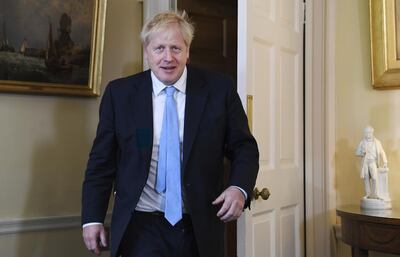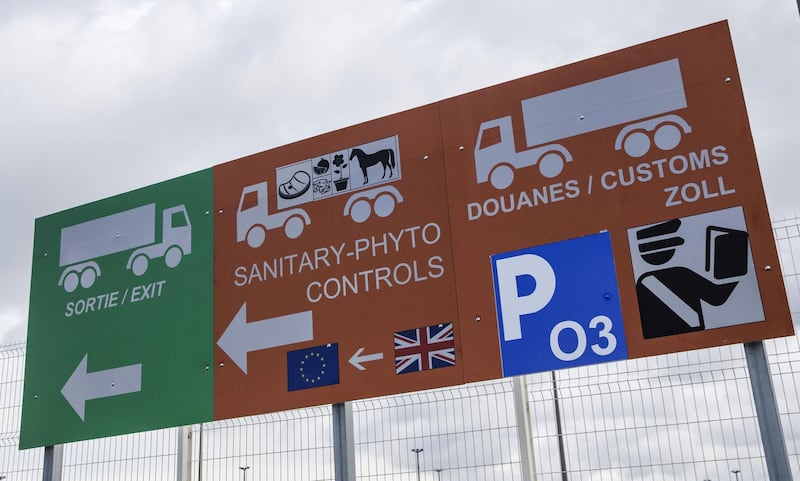When Britain voted in 2016 to leave the European Union, protecting the rights of EU citizens living in the UK or Britons in the other 27 member states seemed relatively straightforward. But back then, the process of departure was also going to be so simple. The electorate was repeatedly assured by pro-Brexit politicians that negotiating a good exit deal would be easy.
During more than three years of bluster and bluff since, nothing of the sort happened. The chances of Britain crashing out without any deal at all have seemed to increase daily until this desperately late stage, when hopes have risen that some sort of agreement is possible.
For those of us with split lives in two countries, a bureaucratic minefield has appeared. It may or may not be removed by whatever transpires at the Brussels summit on Thursday and Friday, or the special sitting of the British parliament on Saturday.
I am British, my wife is French. From her inheritance from her late parents, we have a home in France, although the main family residence is in London. Life looks like becoming a lot more complicated for people like us – the estimated 3.8 million EU citizens living in Britain and more than a million Britons spread around those 27 states.
Since arriving as an au pair, my wife has spent nearly all her life in Britain, working, paying taxes and bringing up two British daughters. But we remain unclear about what any form of Brexit will mean for her, or to me for the periods we spend in France.
She is retired so does not earn the money that would, according to the UK government, entitle her to full residency. She ought to qualify for settled status but, in her present rebelliously French state of mind, she would sooner go to the Tower of London than subject herself to a dispiriting bout of form-filling. About 190,000 people – probably more than half the French citizens in the UK – are in roughly the same boat, in that they have yet to apply for permission to stay. Amid all the confusion, I have so far done little about my desire to spend unrestricted time in France.
If the British Prime Minister Boris Johnson fails to obtain and drive through a cobbled deal, I might find myself unable to use my own home in France for more than three months at a time, then having to stay away from all EU territory for the next three. Would applying for a residency card even cover my particular circumstances? When freedom of movement suddenly stops, all kinds of individual nuances and quandaries arise.
Campaigners for those caught on each side of this divide say future arrangements, according to what has been announced so far, are riddled with uncertainty.
Some Brexiteers – not the ones whose version of the entente cordiale is chanting at the French: “If it wasn’t for the English, you’d be krauts” – like to say they love Europe but hate the EU. But millions of Britons feel thoroughly continental, part of Europe, and cannot see why quarrels about Brussels cannot be pursued from within. To us, any but the most benign Brexit model – effectively, no Brexit at all – will damage this sense of internationalism and the way Britain is viewed abroad.
In common with all who oppose Brexit in Britain, possibly now a majority, I fear leaving the EU will be bad for the UK. It will be worse still for its poorer inhabitants, even though many voted for it.
There is good cause to regret what Brexit has done to Britain’s vaunted qualities of tolerance and fair play. It is not just whingeing “remoaners” who sense ugliness in the prevailing mood. Outsiders also detect a wave of sheer nastiness that has engulfed the country, demoralising EU citizens whose presence, for the most part, enriches Britain.
A depressing dispatch from the UK in one of France's best newspapers, Le Journal du Dimanche, cites examples of hostility: a Frenchwoman married to an Englishman, shunned at her local sports centre in middle-class Surrey; Poles thinking of returning to their homeland from the rundown Midlands ex-mining town of Mansfield, despite having lives and families there. "Whether Brexit comes with or without a deal, the country is already not what it was," the newspaper concluded.

Twice in the weeks following the referendum, I wrote in The National that however unwelcome, the outcome had to be respected.
Even as the economic and social arguments against Brexit have seemed to grow with each piece of serious analysis, anyone believing in democracy must think twice before second-guessing “the wrong result”.
But there is a contrary view that goes beyond selfish concerns about the disruption facing those fortunate enough (or obliged by circumstance) to have homes or lives on both sides of the English Channel. The belief that democratic expression on the issue did not abruptly end on June 23, 2016 – leaving no room for further reflection – has considerable force.
The case for another referendum, if still a tricky one to make, is now stronger because so much ground has shifted.
Perhaps a vote can be truly respected only if the reasons for it, and consequences unforeseen when it occurred, are widely seen as respectable.
A good start would be for Mr Johnson to reiterate his “unequivocal” guarantee to safeguard the interests of EU citizens in Britain, a commitment matching his predecessor Theresa May’s earlier promise that “no family will be split up".
Meanwhile, our elder daughter has renewed her long-lapsed French passport. This week, as we begin our annual spell back in the UK, we will be urging her sister to do likewise – while stocks last.
Colin Randall is a former executive editor of The National and writes from France and Britain





